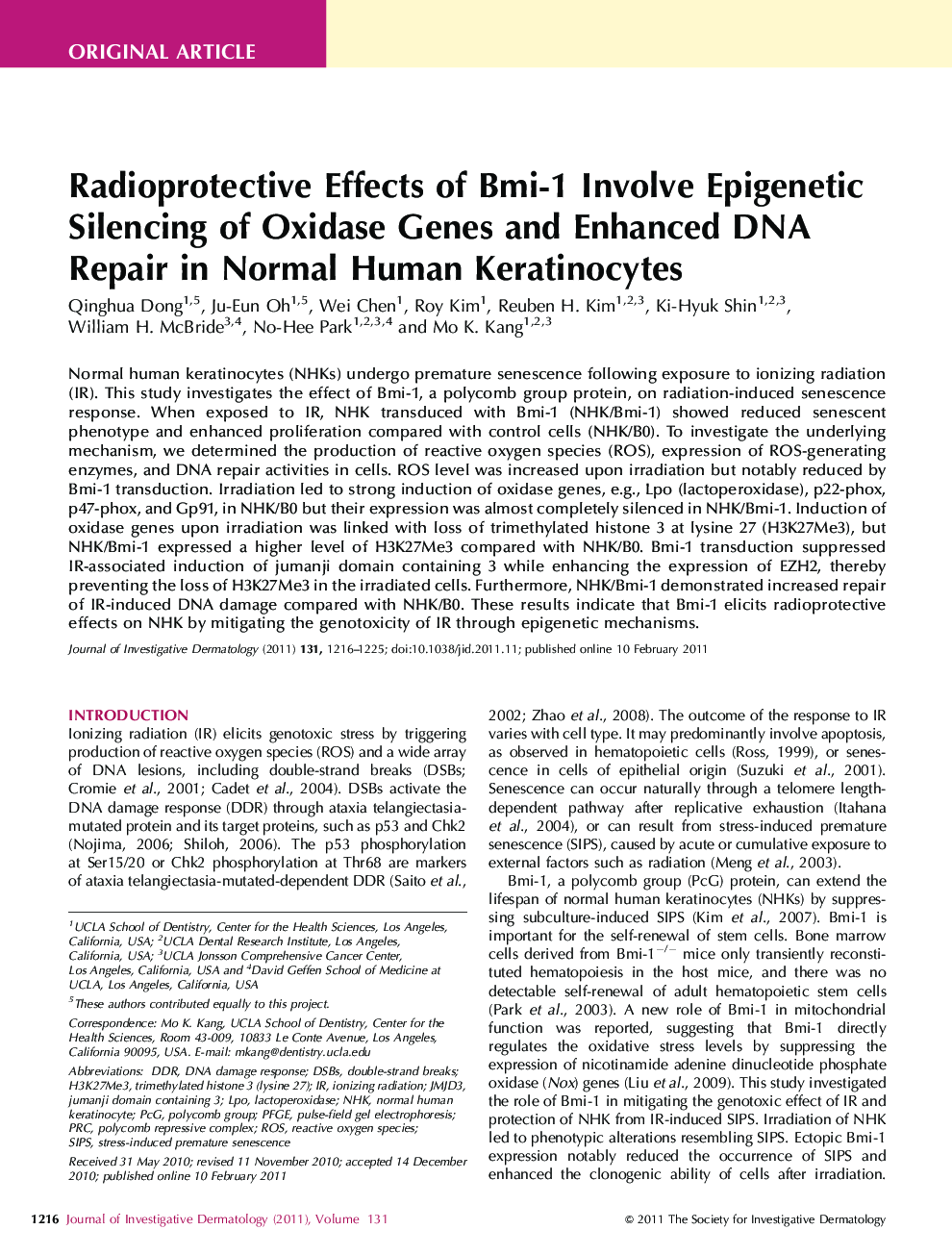| کد مقاله | کد نشریه | سال انتشار | مقاله انگلیسی | نسخه تمام متن |
|---|---|---|---|---|
| 3215670 | 1203539 | 2011 | 10 صفحه PDF | دانلود رایگان |

Normal human keratinocytes (NHKs) undergo premature senescence following exposure to ionizing radiation (IR). This study investigates the effect of Bmi-1, a polycomb group protein, on radiation-induced senescence response. When exposed to IR, NHK transduced with Bmi-1 (NHK/Bmi-1) showed reduced senescent phenotype and enhanced proliferation compared with control cells (NHK/B0). To investigate the underlying mechanism, we determined the production of reactive oxygen species (ROS), expression of ROS-generating enzymes, and DNA repair activities in cells. ROS level was increased upon irradiation but notably reduced by Bmi-1 transduction. Irradiation led to strong induction of oxidase genes, e.g., Lpo (lactoperoxidase), p22-phox, p47-phox, and Gp91, in NHK/B0 but their expression was almost completely silenced in NHK/Bmi-1. Induction of oxidase genes upon irradiation was linked with loss of trimethylated histone 3 at lysine 27 (H3K27Me3), but NHK/Bmi-1 expressed a higher level of H3K27Me3 compared with NHK/B0. Bmi-1 transduction suppressed IR-associated induction of jumanji domain containing 3 while enhancing the expression of EZH2, thereby preventing the loss of H3K27Me3 in the irradiated cells. Furthermore, NHK/Bmi-1 demonstrated increased repair of IR-induced DNA damage compared with NHK/B0. These results indicate that Bmi-1 elicits radioprotective effects on NHK by mitigating the genotoxicity of IR through epigenetic mechanisms.
Journal: Journal of Investigative Dermatology - Volume 131, Issue 6, June 2011, Pages 1216–1225